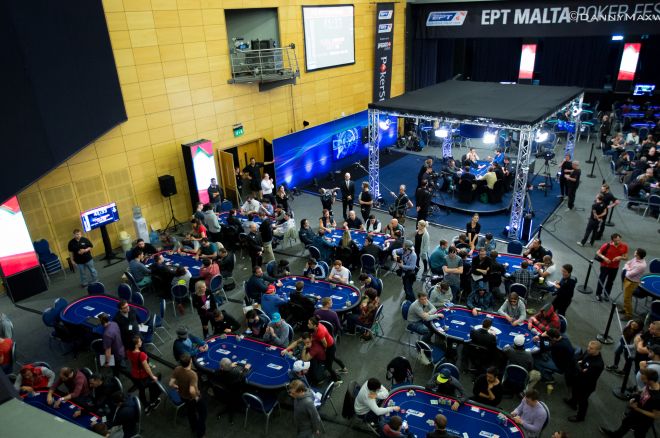Poker tournaments are like any other live tournament: you must have all your tools at your disposal. Handicapping is one of the most important skills you can have and you need to practice it extensively to be familiar with playing the game and familiar with all the various strategies.
Preparation is the key to successful handicapping. If you are going to spend a lot of time during a poker tournament trying to beat the dealer, you want to be prepared to pay with a more competitive edge against the other players at your table, as well.

When preparing for a poker tournament, there are a few different approaches you can take. You can either, like the majority of players, play blind and hope to win chips without seeing your hand, or you can play pot in the hope of winning more chips. Blinds are the obvious choice, as the low limits are the cheapest way to learn the game. You won’t have to up your blinds at any point unless you’re in the big blind, as the spread limits are low in the high blind and above. However, the benefit of playing blind is that the dealer can’t see your cards, making the start of many tournaments more predictable.
The second method, and probably the most common, is to lay down a starting bet adjusted to a pot size. For example, at a $5-$10 table you’ll never have to add more to your pot to stay in, since every other player must put in the same amount. The smaller pots mean players have a lot more incentive to wait for a relatively safe hand such as small suited connectors. The risk is that you’ll be racing against a lot of players with a lot of different hands. If you have a high number of players in the pot, you are better off trying to win the smaller pots, since you’re less likely to be up against a lot of high cards.
Many players also use tournament software, such as Holdem manager, to help them to more easily keep track of and analyze the players at their table. Any time you play a tournament, it’s helpful to record your play for later analysis. If you lose the popular lotto rooms, such as Powerball and Mega Millions, you can post your game stats so that your buddies can see the trend. If you ever do get caught bluffing, you can post the hand history with all the other hands you’ve played against the same opponents, which will show a dramatic improvement in your results.
ively, the best poker tools, links, and resources are easily accessible online
ively, the best poker tools, links, and resources are easily accessible online. When looking for free poker tools, see if you can find “free” as opposed to “pay for” free. While certain tools, such as odds calculators, require you to put money into your account before use, these other free poker tools, such as poker horse trackers, only require you to have access to your online poker account (which you should be always doing, of course). The best poker tools are often not from the poker rooms, but from online poker review sites.
When using a poker tool, you should try to use one that allows you to view the statistics of your play. You want to look at how you play as compared to other players at your same playing level. With this type of tool, you can find what percentage of hands you usually win, and what percentage of hands you usually lost. Look at the hands you won and compare them to the hands you lost. This will give you an accurate idea of your game play.
Take advantage of any weak players at your table. They’re giving you betting information. While it’s important that you don’t knock these players out (stars, actually), when you’re producing winning hands, they can get very disgruntled.
With the right poker tools, you can begin to turn the tides around on yourself. You’ll have a system to profit from beginners, and hold off on the “iculties”. For all these players, there will be plenty of profitable pastures. The best poker tools are often geared toward beginner players, such as Sit and Go Pro. You can learn invaluable new information from this book, which can teach you to play right from the start. Play and practice is the only key. Don’t be afraid to use a poker tool a little bit at a time. Most of these tools are ethically designed to help you.